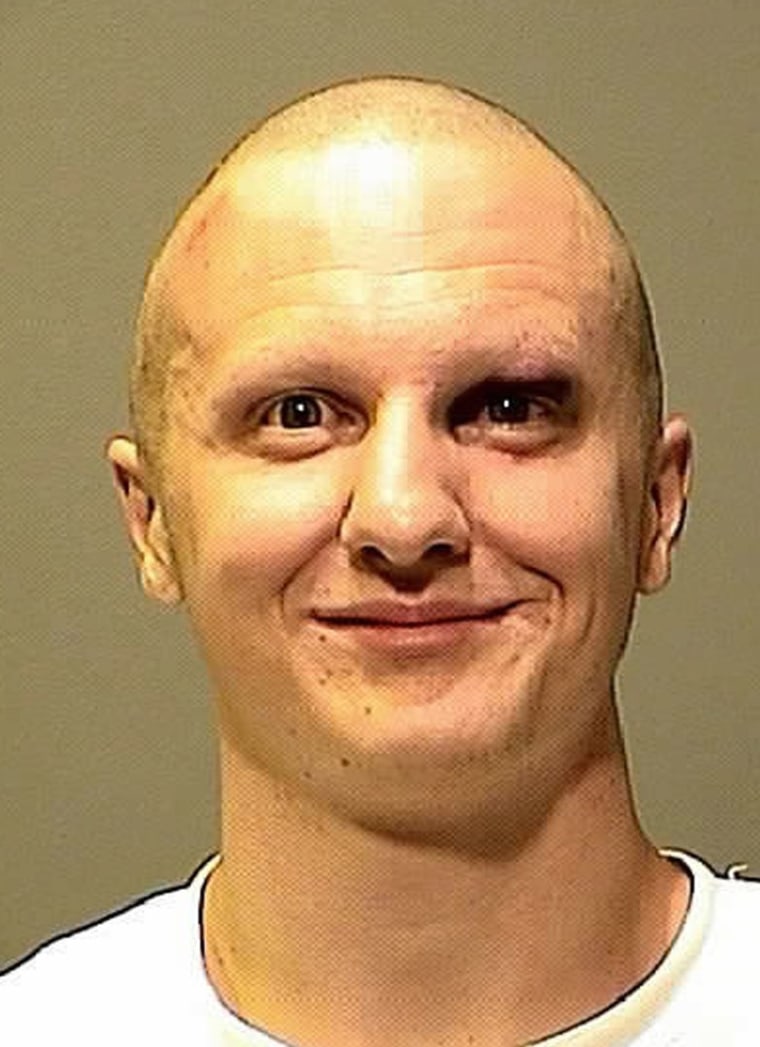Doctors treating Jared Loughner, the Arizona man accused of killing six people and wounding 13 others, including Rep. Gabrielle Giffords, have told a federal judge that after roughly three months of treatment at a prison hospital, he is still not mentally competent to stand trial.
That conclusion was revealed Tuesday in a court filing by the judge overseeing the case. In a written order resolving several pending legal issues, U.S. District Judge Larry Burns disclosed that the warden of the prison hospital has asked for more time "to complete the mental health treatment to determine if there is a substantial probability that the defendant will become competent for trial to proceed."
The prison doctor supervising Loughner's treatment also wrote that Loughner "remains not competent to stand trial."
The judge has asked prosecutors and Loughner's lawyers for their views on whether to give the doctors more time.
The disclosure comes as a federal appeals court in San Francisco hears oral arguments on whether the prison doctors can give Loughner antipsychotic medications against his will.
Loughner has been held since late May at a federal prison hospital in Missouri. He was sent there for treatment after a judge concluded that Loughner was not mentally fit to stand trial for the Jan. 8 shootings at a Tucson parking lot.
His lawyers are fighting a decision by prison doctors to give him psychoactive medications against his will. Prosecutors argue that the drugs were administered because he was a danger to himself and others.
For a three-judge panel of the Ninth Circuit Court of Appeals, the issue is a simple one: Who gets to decide? Can the doctors give Loughner the drugs based on their own medical opinion, or must they first get approval from a judge?
Lawyers for Loughner and the Justice Department argued over the issue at a 90-minute hearing in San Francisco, though the appeals judges did not make any rulings from the bench.
In June, prison doctors began giving Loughner anti-psychotic medications against his will, in the belief that they were medically necessary to treat his symptoms of schizophrenia. In response to a challenge from his lawyers, a federal appeals court in July ordered the treatments to stop, while it considered the legal issues.
But less than a week later, prison doctors resumed giving him the drugs for a different reason. They said he had become violent, endangering himself, other inmates, and prison staff.
The U.S. Supreme Court has never spelled out the rules that apply in a case like this, involving an inmate who has not been convicted, who is being held in order to see whether his mental competency can be restored, and who refuses to take medication to treat his mental problems.
Prosecutors argue that the reason Loughner is in a prison hospital do not matter. "The legitimate interest of a prison to maintain safety and security is the same whether the inmate is a pretrial detainee or a convicted prisoner," they argue in court filings.
"A dangerous inmate is a danger regardless of the state of his criminal case," they say.
But Loughner's lawyers argue that different legal standards should apply to an inmate who is being held for medical reasons and whose ability to stand trial and play a role in his own defense could be affected.
"General restrictions of liberty intended to maintain the safety and security of a prison are not the same as the forcible administration of drugs that are intended to alter the thinking of an individual, may cause permanent and debilitating side effects, and may deprive the detainee of his right to a fair trial," they argue in their legal briefs.
A prison doctor testified at a separate hearing last week that Loughner paces and rocks back and forth during discussion sessions. At other times, the doctor said, he stands in a corner holding his face in his hands. Attempts to videotape sessions with his doctors produce angry outbursts, the doctor testified.
Earlier court filings said that Loughner threw a chair and spat at his lawyers before he was declared mentally unfit for trial.
The federal judge presiding over the criminal case has set a deadline of Sept. 6 for prison doctors to file a report indicating whether or not the hospital treatments have rendered Loughner mentally competent for trial.
